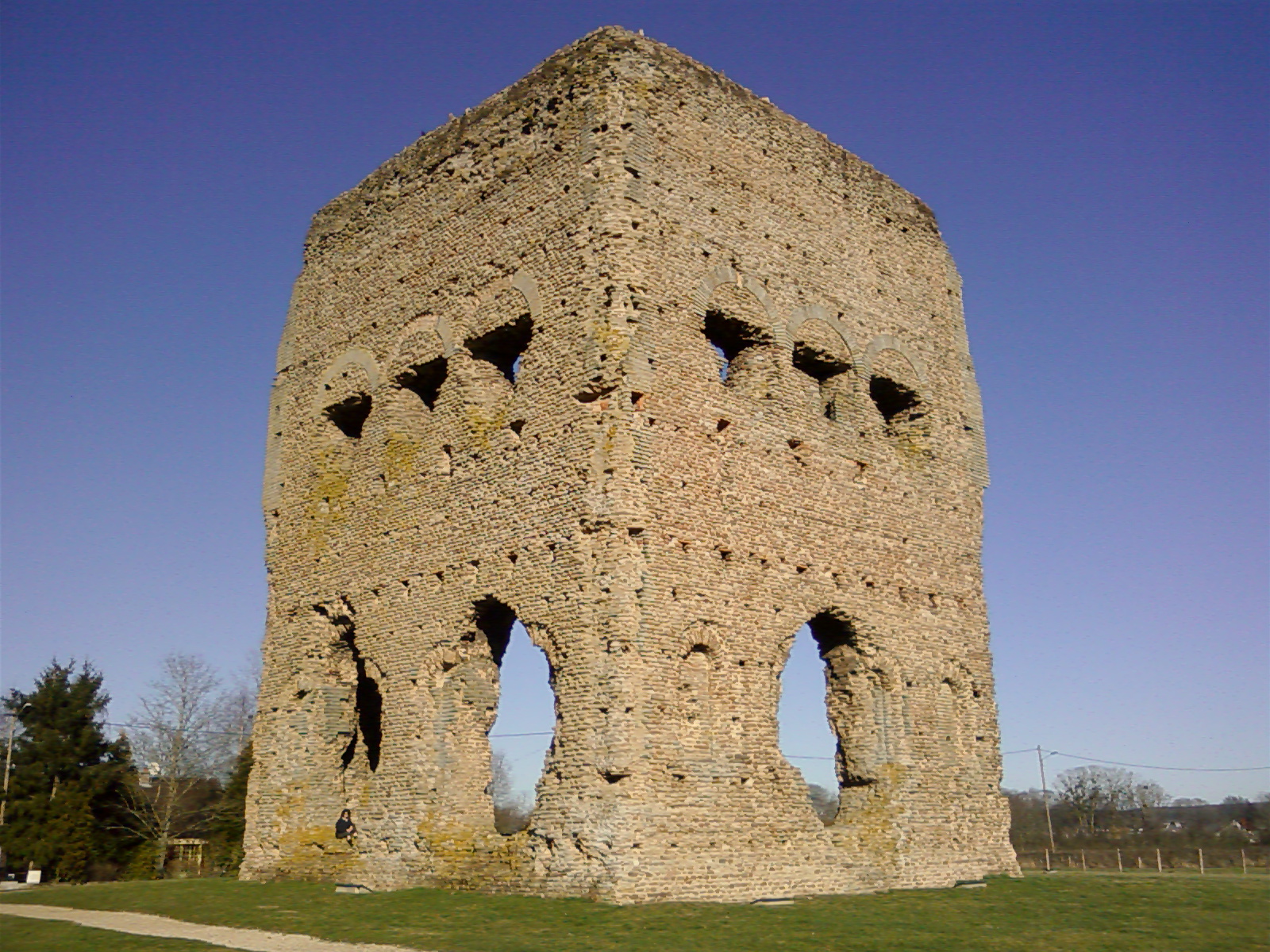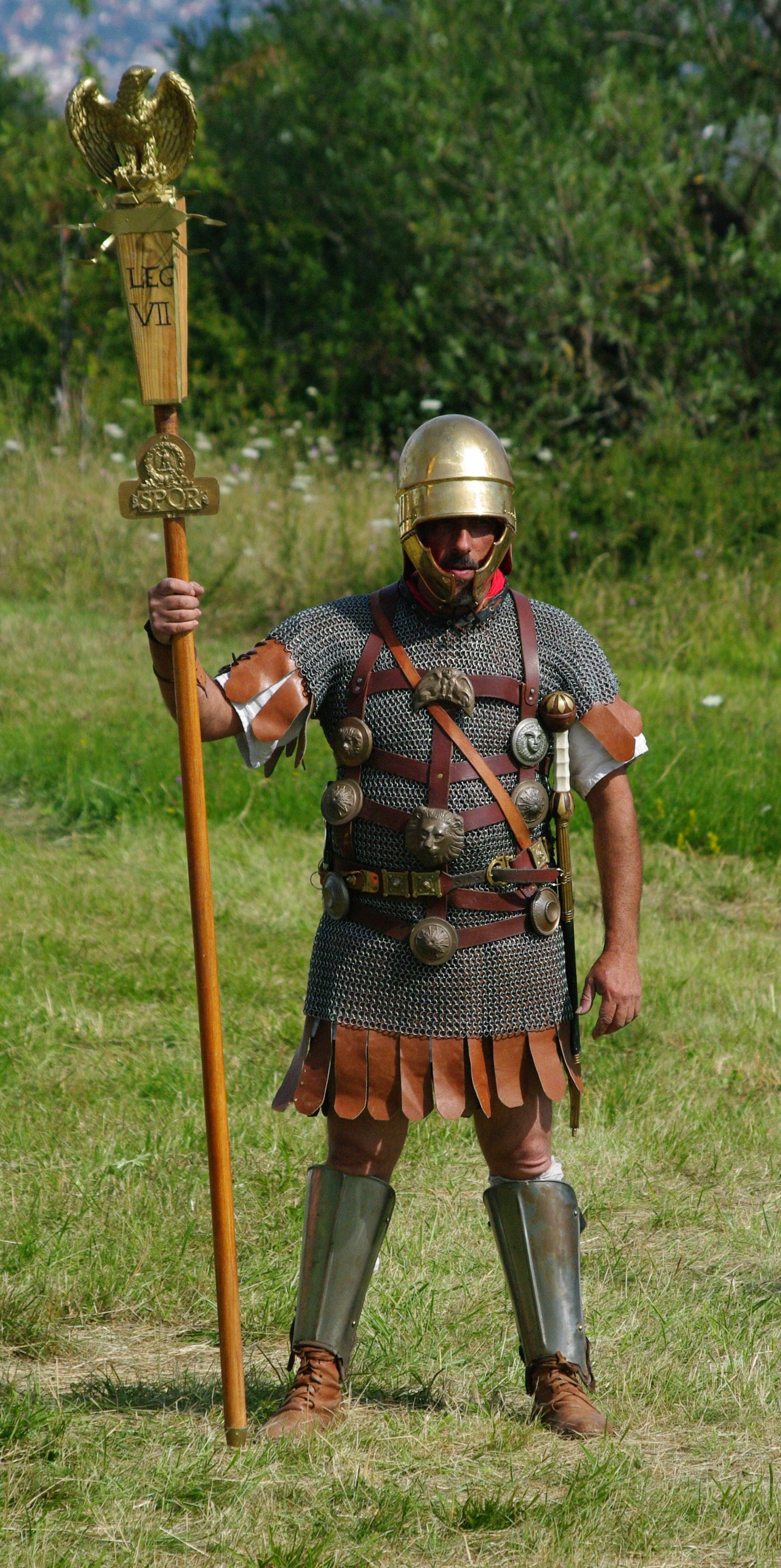|
Augustodunum Haeduorum
Autun () is a subprefecture of the Saône-et-Loire department in the Bourgogne-Franche-Comté region of central-eastern France. It was founded during the Principate era of the early Roman Empire by Emperor Augustus as Augustodunum to give a Roman capital to the Gallic people Aedui, who had Bibracte as their political centre. In Roman times the city may have been home to 30,000 to 100,000 people, according to different estimates. Nowadays, the commune has a population of about 15,000. Geography The commune lies in the northwest of the department. History Early history Augustodunum was founded during the reign of the first Roman emperor, Augustus, after whom it was named. It was the civitas "tribal capital" of the Aedui, Continental Celts who had been allies and "brothers" (') of Rome since before Julius Caesar's Gallic Wars. Augustodunum was a planned foundation replacing the original oppidum Bibracte, located some away. Several elements of Roman architecture such as wall ... [...More Info...] [...Related Items...] OR: [Wikipedia] [Google] [Baidu] |
Subprefectures In France
In France, a subprefecture (french: sous-préfecture) is the commune which is the administrative centre of a departmental arrondissement that does not contain the prefecture for its department. The term also applies to the building that houses the administrative headquarters for an arrondissement. Senate (in French). The civil servant in charge of a subprefecture is the , assisted by a [...More Info...] [...Related Items...] OR: [Wikipedia] [Google] [Baidu] |
Aedui
The Aedui or Haedui (Gaulish: *''Aiduoi'', 'the Ardent'; grc, Aἴδουοι) were a Gallic tribe dwelling in the modern Burgundy region during the Iron Age and the Roman period. The Aedui had an ambiguous relationship with the Roman Republic and with other Gallic tribes. In 121 BC, they appealed to Rome against the Arverni and Allobroges. During the Gallic Wars (58–50 BC), they gave valuable though not whole-hearted support to Caesar, before eventually giving lukewarm support to Vercingetorix in 52. Although they were involved in the revolts of Iulius Sacrovir in 21 AD and Vindex in 68 AD, their aristocracy became highly Romanized under the Empire. Name They are mentioned as ''Ardues'' (Ἄρδυες) by Polybius (2nd c. BC), ''Haedui'' by Cicero (mid-1st c. BC) and Caesar (mid-1st c. BC), ''Haeduos'' by Livy (late 1st c. BC), ''Aedui'' by Pliny (mid-1st c. AD), ''Aidúōn'' (Αἰδύων) by Ptolemy (2nd c. AD), and as ''Aídouoi'' (Aἴδουοι) by Cassius Dio (3rd c ... [...More Info...] [...Related Items...] OR: [Wikipedia] [Google] [Baidu] |
Late Antiquity
Late antiquity is the time of transition from classical antiquity to the Middle Ages, generally spanning the 3rd–7th century in Europe and adjacent areas bordering the Mediterranean Basin. The popularization of this periodization in English has generally been credited to historian Peter Brown, after the publication of his seminal work '' The World of Late Antiquity'' (1971). Precise boundaries for the period are a continuing matter of debate, but Brown proposes a period between the 3rd and 8th centuries AD. Generally, it can be thought of as from the end of the Roman Empire's Crisis of the Third Century (235–284) to the early Muslim conquests (622–750), or as roughly contemporary with the Sasanian Empire (224–651). In the West its end was earlier, with the start of the Early Middle Ages typically placed in the 6th century, or earlier on the edges of the Western Roman Empire. The Roman Empire underwent considerable social, cultural and organizational changes starting ... [...More Info...] [...Related Items...] OR: [Wikipedia] [Google] [Baidu] |
Julian (emperor)
Julian ( la, Flavius Claudius Julianus; grc-gre, Ἰουλιανός ; 331 – 26 June 363) was Roman emperor from 361 to 363, as well as a notable philosopher and author in Greek. His rejection of Christianity, and his promotion of Neoplatonic Hellenism in its place, caused him to be remembered as Julian the Apostate in Christian tradition. A nephew of Constantine, Julian was one of few in the imperial family to survive the purges and civil wars during the reign of Constantius II, his cousin. Julian became an orphan as a child after his father was executed in 337, and spent much of his life under Constantius's close supervision.''Oxford Dictionary of Late Antiquity'', "Julian the Apostate", p. 839 However, the emperor allowed Julian to freely pursue an education in the Greek-speaking east, with the result that Julian became unusually cultured for an emperor of his time. In 355, Constantius II summoned Julian to court and appointed him to rule Gaul. Despite his inexperienc ... [...More Info...] [...Related Items...] OR: [Wikipedia] [Google] [Baidu] |
Siege Of Autun
The siege of Autun was a conflict fought between the Roman Empire and the invading barbarian Alemanni tribe, who were ravaging Gaul, in 356 AD. The Romans successfully defended the city, and the barbarians retreated on the approach of reinforcements. Background During the Roman civil war of 350–353, Emperor Constantius II sought to increase pressure on his rival Magnentius by urging the Alemannic confederation to cross the Rhine and invade Magnentius' dominions in Gaul. The scheme was successful; the tribes under the command of Chnodomar and his allies invaded Gaul, defeating ''Caesar'' Decentius (Magnentius' brother) in the field, and besieging him in Sens. At the conclusion of the civil war, however, the Alemani declined to yield their conquests to the emperor, though he had granted them a commission to attack exclusively the rebels. Constantius entrusted Silvanus with driving the barbarians from Gaul and restoring Roman authority there. After the latter's revolt in ea ... [...More Info...] [...Related Items...] OR: [Wikipedia] [Google] [Baidu] |
Alemanni
The Alemanni or Alamanni, were a confederation of Germanic tribes * * * on the Upper Rhine River. First mentioned by Cassius Dio in the context of the campaign of Caracalla of 213, the Alemanni captured the in 260, and later expanded into present-day Alsace, and northern Switzerland, leading to the establishment of the Old High German language in those regions, by the eighth century named ''Alamannia''. In 496, the Alemanni were conquered by Frankish leader Clovis and incorporated into his dominions. Mentioned as still pagan allies of the Christian Franks, the Alemanni were gradually Christianized during the seventh century. The is a record of their customary law during this period. Until the eighth century, Frankish suzerainty over Alemannia was mostly nominal. After an uprising by Theudebald, Duke of Alamannia, though, Carloman executed the Alamannic nobility and installed Frankish dukes. During the later and weaker years of the Carolingian Empire, the Alemannic cou ... [...More Info...] [...Related Items...] OR: [Wikipedia] [Google] [Baidu] |
Oppidum
An ''oppidum'' (plural ''oppida'') is a large fortified Iron Age settlement or town. ''Oppida'' are primarily associated with the Celtic late La Tène culture, emerging during the 2nd and 1st centuries BC, spread across Europe, stretching from Britain and Iberia in the west to the edge of the Hungarian plain in the east. These settlements continued to be used until the Romans conquered Southern and Western Europe. Many subsequently became Roman-era towns and cities, whilst others were abandoned. In regions north of the rivers Danube and Rhine, such as most of Germania, where the populations remained independent from Rome, ''oppida'' continued to be used into the 1st century AD. Definition is a Latin word meaning 'defended (fortified) administrative centre or town', originally used in reference to non-Roman towns as well as provincial towns under Roman control. The word is derived from the earlier Latin , 'enclosed space', possibly from the Proto-Indo-European , 'occu ... [...More Info...] [...Related Items...] OR: [Wikipedia] [Google] [Baidu] |
Gallic Wars
The Gallic Wars were waged between 58 and 50 BC by the Roman general Julius Caesar against the peoples of Gaul (present-day France, Belgium, Germany and Switzerland). Gallic, Germanic, and British tribes fought to defend their homelands against an aggressive Roman campaign. The Wars culminated in the decisive Battle of Alesia in 52 BC, in which a complete Roman victory resulted in the expansion of the Roman Republic over the whole of Gaul. Though the Gallic military was as strong as the Romans, the Gallic tribes' internal divisions eased victory for Caesar. Gallic chieftain Vercingetorix's attempt to unite the Gauls under a single banner came too late. Caesar portrayed the invasion as being a preemptive and defensive action, but historians agree that he fought the Wars primarily to boost his political career and to pay off his debts. Still, Gaul was of significant military importance to the Romans. Native tribes in the region, both Gallic and Germanic, had atta ... [...More Info...] [...Related Items...] OR: [Wikipedia] [Google] [Baidu] |
Julius Caesar
Gaius Julius Caesar (; ; 12 July 100 BC – 15 March 44 BC), was a Roman general and statesman. A member of the First Triumvirate, Caesar led the Roman armies in the Gallic Wars before defeating his political rival Pompey in a civil war, and subsequently became dictator from 49 BC until his assassination in 44 BC. He played a critical role in the events that led to the demise of the Roman Republic and the rise of the Roman Empire. In 60 BC, Caesar, Crassus and Pompey formed the First Triumvirate, an informal political alliance that dominated Roman politics for several years. Their attempts to amass power as were opposed by the within the Roman Senate, among them Cato the Younger with the frequent support of Cicero. Caesar rose to become one of the most powerful politicians in the Roman Republic through a string of military victories in the Gallic Wars, completed by 51 BC, which greatly extended Roman territory. During this time he both invaded Britain an ... [...More Info...] [...Related Items...] OR: [Wikipedia] [Google] [Baidu] |
Celts
The Celts (, see pronunciation for different usages) or Celtic peoples () are. "CELTS location: Greater Europe time period: Second millennium B.C.E. to present ancestry: Celtic a collection of Indo-European peoples. "The Celts, an ancient Indo-European people, reached the apogee of their influence and territorial expansion during the 4th century bc, extending across the length of Europe from Britain to Asia Minor."; . " e Celts, were Indo-Europeans, a fact that explains a certain compatibility between Celtic, Roman, and Germanic mythology."; . "The Celts and Germans were two Indo-European groups whose civilizations had some common characteristics."; . "Celts and Germans were of course derived from the same Indo-European stock."; . "Celt, also spelled Kelt, Latin Celta, plural Celtae, a member of an early Indo-European people who from the 2nd millennium bce to the 1st century bce spread over much of Europe."; in Europe and Anatolia, identified by their use of Celtic langua ... [...More Info...] [...Related Items...] OR: [Wikipedia] [Google] [Baidu] |
Civitas
In Ancient Rome, the Latin term (; plural ), according to Cicero in the time of the late Roman Republic, was the social body of the , or citizens, united by law (). It is the law that binds them together, giving them responsibilities () on the one hand and rights of citizenship on the other. The agreement () has a life of its own, creating a or "public entity" (synonymous with ), into which individuals are born or accepted, and from which they die or are ejected. The is not just the collective body of all the citizens, it is the contract binding them all together, because each of them is a . is an abstract formed from . Claude Nicolet traces the first word and concept for the citizen at Rome to the first known instance resulting from the synoecism of Romans and Sabines presented in the legends of the Roman Kingdom. According to Livy, the two peoples participated in a ceremony of union after which they were named Quirites after the Sabine town of Cures. The two groups bec ... [...More Info...] [...Related Items...] OR: [Wikipedia] [Google] [Baidu] |








